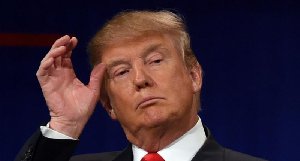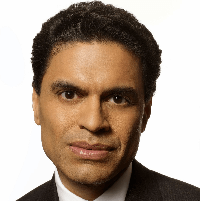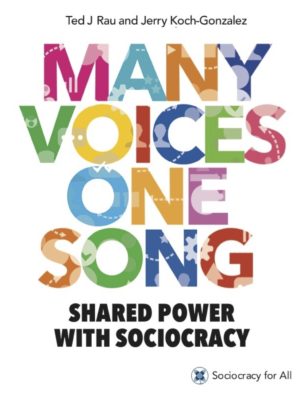Could sociocracy have corrected democracy to prevent the election of Donald Trump, bullshit artist and astoundingly unqualified candidate, as the Republican nominee for President of the United States?
 Americans abroad are pelted with questions about Donald Trump. Is he real? How did he get nominated in a democratic process? Is he evidence of the US abandoning support for equality and freedom around the world? If not, why did 13,681,972 people vote for him?
Americans abroad are pelted with questions about Donald Trump. Is he real? How did he get nominated in a democratic process? Is he evidence of the US abandoning support for equality and freedom around the world? If not, why did 13,681,972 people vote for him?
As the result of a democratic process, the Donald Trump nomination has negative consequences far greater than in the United States. People around the world are fearful and in horror.
Was the process really democratic?
Compared to the democratic process in other countries and in history, yes it was. Despite allegations of “the establishment” trying to control the election, in fact, the establishment would have done a better job if they had. In the Republican Party’s nominating process, each person’s vote was respected equally in every state. Except in the few small populations that use a caucus process, each person was allowed to vote privately, without intimidation. Each candidate was allowed to present their case without fear of reprisal. Each voter had the same access to the same information as other voters.
From a field of 12 candidates who received enough votes to be considered formal contenders, the voters overwhelmingly elected the least qualified to be president. He is also the person most likely to cause harm not only to the internal governance If the US but to its relationships with every other country in the world.
Could this have happened with even a partial adherence to sociocratic principles? We would like to think not, but how?
Transparency, Inclusiveness, and Accountability
The principles of sociocracy are based on the values of transparency, inclusiveness, and accountability. They require decisions to be made with the consent of all they affect, not just the majority. In a national election, of course, consent would be an unrealistic expectation. No one has the amount of time it would take to resolve a national election by that standard. In general, a majority rule is not the best decision-making method, but it is the one that everyone consented to use. Perhaps it is the only possible one in an election involving hundreds of thousands of participants.
Sociocracy requires the organization of decision-makers into decision-making groups, or circles, that self-organize to produce a decision. Balanced authority linking these circles, for example, between the local Republican parties and the national Republican Party. Neither can dominate the other.
All these conditions were met in this election and to a greater extent than in previous elections of this size. Approximately 42% of the US population of 320 million people are Republicans and could have voted. Registration, although not as transparent as it could be, was open to all Republicans.
There was open discussion between Republicans and Democrats about the pros and cons of each candidate and opportunities for each candidate to respond. Candidates were essentially given equal time in the media. Both candidates and voters could find a forum for expressing their ideas. Local and national newspapers allowed comments from anyone who wanted to post them. The local talk radio stations and even the national cable television station MSNBC invited all viewers to send them comments. Local libraries have public computers and technical help so everyone has access to online forums.
What was missing?
The organization of the Republican party is not based on groups of people who discuss and deliberate together. Some do, but an individual voter is not required or even expected to discuss the candidates or the issues with others before voting. Voters are not expected to inform themselves.
A major deficit in the election was leadership from experts. In a misguided attempt to allow the election to go forward democratically, the leadership was not forceful enough in noting Trump’s lack of qualifications. In some instances, it was the result of intimidation by Trump’s power. Despite his poor business practices, he is wealthy and contributes to many election campaigns. He also awards favors to those who like him, such as free visits to his many magnificent hotels and golf courses. These include his Mir-a-Lago Club in Palm Beach, Florida, which is members only and those members with a Trump Card receive special privileges.
However, the lack of personal intervention by Republican leaders could have been offset by a job description. In sociocratic elections, adopting a job description is the first step. Voters are expected to measure their nominee against the requirements of the job and to defend their choice on that basis.
With no job description, the election process was lacking a rational measurement. How do you judge the appropriateness of a candidate without a clear statement of the office’s responsibilities and expectations? The lack of a job description was largely what made Donald Trump possible. The only surprise is that a Trump hasn’t happened sooner.
Donald Trump, Bullshit Artist
This week the highly respected Indian American journalist Fareed Zukaria discussed Donald Trump in his weekly column in the Washington Post, “The Unbearable Stench of Trump’s BS” and on his weekly television program on CNN, “Trump as a Bullshit Artist” (a video is also posted).
 Zakaria was asked to explain why Donald Trump could say something that had been proven false and then excuse it with “a caustic tweet and an indignant interview.” Zakaria’s response was because he is a “bullshit artist.” Zakaria referred to the work of American philosopher Harry Frankfurt, “On Bullshit”:
Zakaria was asked to explain why Donald Trump could say something that had been proven false and then excuse it with “a caustic tweet and an indignant interview.” Zakaria’s response was because he is a “bullshit artist.” Zakaria referred to the work of American philosopher Harry Frankfurt, “On Bullshit”:
Harry Frankfurt, an eminent moral philosopher and former professor at Princeton, wrote a brilliant essay in 1986 called “On Bullshit.” In the essay, Frankfurt distinguishes crucially between lies and BS: “Telling a lie is an act with a sharp focus. It is designed to insert a particular falsehood at a specific point. . . . In order to invent a lie at all, [the teller of a lie] must think he knows what is true.”
But someone engaging in BS, Frankfurt says, “is neither on the side of the true nor on the side of the false. His eye is not on the facts at all . . . except insofar as they may be pertinent to his interest in getting away with what he says.” Frankfurt writes that the BS-er’s “focus is panoramic rather than particular” and that he has “more spacious opportunities for improvisation, color, and imaginative play. This is less a matter of craft than of art. Hence the familiar notion of the ‘bullshit artist.’ ”
Zakaria describes how Trump has done this all his life.
He boasts — and boasts and boasts — about his business, his buildings, his books, his wives. Much of it is a concoction of hyperbole and falsehoods. And when he’s found out, he’s like that guy we have all met at a bar who makes wild claims but when confronted with the truth, quickly responds, “I knew that!”
 Trump also never takes it back. He moves to the next boast. In the bar, at a wedding, dinners, and parties, this is fun. This is the guy at the center of the show. His performance before thousands of people at his campaign events is that of circus barker, a man performing to entice his audience to vote for my show. Vote for me. I’ll make life perfect. Like you’ve never experienced before.
Trump also never takes it back. He moves to the next boast. In the bar, at a wedding, dinners, and parties, this is fun. This is the guy at the center of the show. His performance before thousands of people at his campaign events is that of circus barker, a man performing to entice his audience to vote for my show. Vote for me. I’ll make life perfect. Like you’ve never experienced before.
Is Trump a Two-Headed Monster?
People who have been friends of Trump’s for many years say they like him and that he is a good guy. He’s fun, he’s generous, he’s fair. In private, he never behaves as if believes the same views he expresses in his campaign speeches. When Secretary of State Hillary Clinton was asked why she went to Trump’s daughter’s wedding with 500 friends and family members, she responded, “Because he’s fun.”
The wedding invitation and Clinton’s positive response were before Trump became the Republican nominee and Clinton’s fierce critic. Their daughters are also friends.
This is typical of other responses by his (former) friends. They have also found him to be kind and personable. They are astounded by his pronouncements from the podium to ban Muslims, protect gun rights, ignore international treaties, and write-off our national debt. They say that just isn’t the Donald they know.
Is he a two-headed monster, a Dr. Jekyll and Mr. Hyde? No the theory of the bullshitter says. He performs to his audience. Journalists embedded with his campaign say he has an uncanny ability to read the audience and craft his message to the moment. There are not two people, or three or six.
Like a lie that would require fine distinctions and precise observance between the characteristics of his different personalities and positions. It would require rationality.
Not irrationality, but an art
Trump’s speeches aren’t rational. They make no sense. He double talks. He spouts imaginary data. Even contradicts himself from one speech or interview to the next. That is the art of performance. He seduces his audience not to believe, but to be entertained so they will attend his parties. And sign on to less than realistic business deals and to trust him even though his record of success is questionable at best.
In Trump’s view, our government is a circus and its leaders as clowns. As all BS-ers do, he is creating the circus and the clowns. Like the Music Man, he is promising to fix it. As if the Circus Barker in a small circus can become a great leader in international politics and create a lush economy. He thinks his bullshit will work the way it always has. Only now, ten weeks before the election have leaders have started to speak out and he has crossed so many lines of decency, that his poll numbers are beginning to drop.
Journalists and opposing candidates have been frustrated at not being able to pin Trump down with the truth. They can’t because truth is not his concern. To lie, you have to know the truth. He doesn’t care about the truth. Fareed quotes the philosopher Harry G. Frankfurt again when he says:
Liars and truth-tellers are both acutely aware of facts and truths. They are just choosing to play on opposite sides of the same game to serve their own ends. The BS artist, however, has lost all connection with reality. He pays no attention to the truth. “By virtue of this,” Frankfurt writes, “bullshit is a greater enemy of truth than lies are.” … Standard rules of fact, truth, and reality have disappeared in this campaign.
Have you noticed how uninteresting Trump’s rallies have become since he has dropped the circus barker’s showmanship? He has tried to adopt a more conventional speech-making style while saying the same things. He is a candidate, no longer a circus barker, and is no longer entertaining.
Harry Frankfurt’s article “On Bullshit” was published as a book of the same title in 2005. A copy of the article in PDF: Frankfurt On Bullshit
Wikipedia’s entry on the Results of the Republican Party Presidential Primaries includes a detailed analysis of the process that nominated Donald Trump as a candidate for President of the United States. The results are given state by state, candidate by candidate.
Categories: Decisions and Power, In Civic Life

